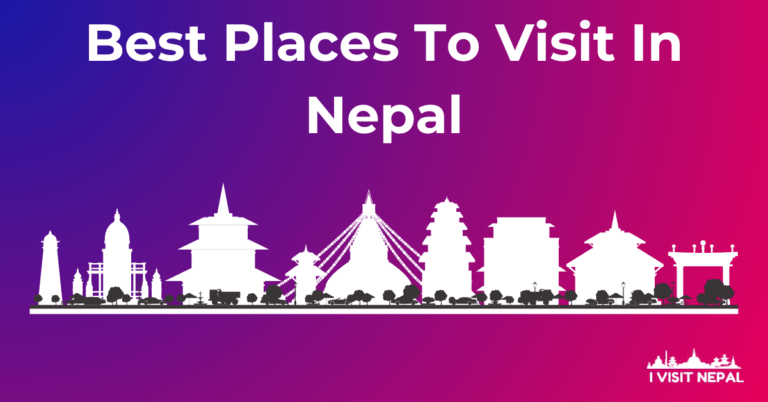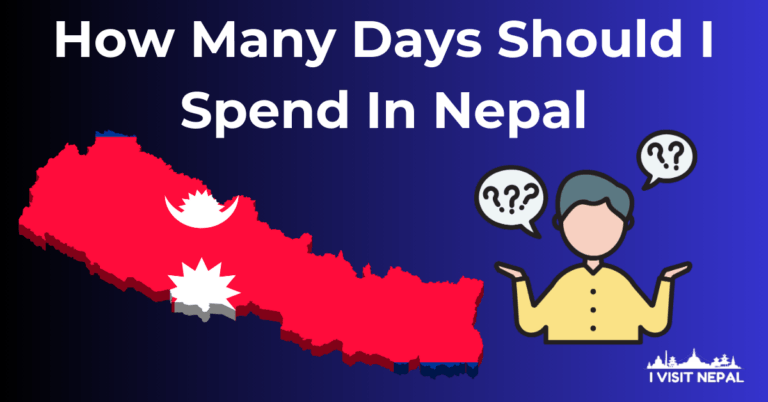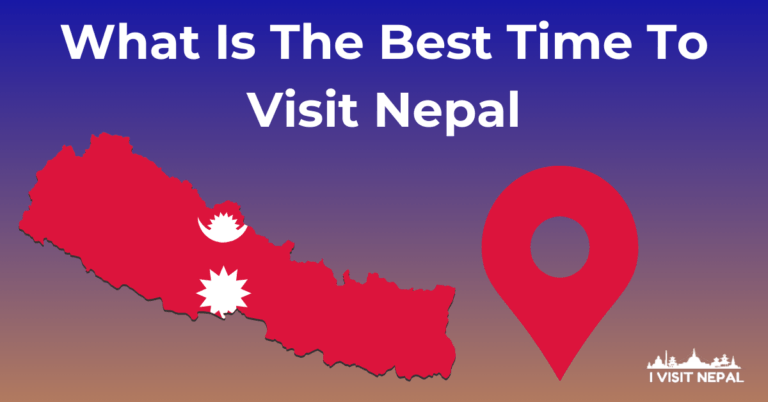Introduction to Travel Health: Vaccinations for Nepal
Traveling to Nepal is an exciting adventure, but it’s essential to be prepared, particularly when it comes to your health. Nepal’s diverse geography and climate can expose travelers to various health risks, making vaccinations a crucial part of your travel preparations. This guide will help you understand the importance of vaccinations, outline the necessary shots, and offer practical advice on staying healthy before, during, and after your trip to Nepal.
Importance of Being Well-Prepared Health-Wise Before Traveling
Before embarking on your journey to Nepal, being proactive about your health can make a significant difference in your travel experience. Vaccinations are a key aspect of this preparation, providing protection against diseases that may be prevalent in the region. Proper health preparation helps you avoid potential illnesses, ensuring a smoother and more enjoyable trip.
Nepal’s unique environment presents specific health challenges. Understanding these risks and taking appropriate precautions, such as getting the right vaccinations, can help safeguard your health. This guide will cover essential vaccinations, preventive measures, and practical tips to ensure you’re well-prepared for your adventure in Nepal.
Understanding Nepal’s Travel Health Landscape
Nepal’s varied geography—from the lowlands of the Terai to the high altitudes of the Himalayas—introduces a range of health risks. These include diseases transmitted by insects, food and waterborne illnesses, and respiratory conditions related to altitude. Here’s what you need to know about the health landscape in Nepal:
Nepal’s Geographic and Climatic Diversity Brings Various Health Risks
Nepal’s diverse climate means different regions face different health challenges. The lowland Terai region, for example, is prone to diseases like malaria and dengue fever, while higher altitudes may present risks related to altitude sickness and respiratory issues. Understanding these regional risks helps tailor your health precautions effectively.
Common Diseases Travelers Might Be Exposed to in Nepal
- Food and Waterborne Illnesses: Diarrheal diseases such as traveler’s diarrhea, typhoid, and hepatitis A are common due to varying sanitation standards.
- Vector-Borne Diseases: Malaria, dengue fever, and Japanese encephalitis are transmitted by mosquitoes and are prevalent in certain areas.
- Altitude-Related Conditions: High-altitude sickness is a risk for trekkers venturing above 2,500 meters (8,200 feet).
Healthcare in Nepal: Accessibility and Facilities for Travelers
Healthcare facilities in Nepal vary widely. Major cities like Kathmandu and Pokhara have hospitals and clinics with international standards, but rural areas may have limited access to medical care. Travelers should be aware of these variations and prepare accordingly.
Routine Vaccinations: Your First Line of Defense
Routine vaccinations are your first defense against preventable diseases and should be up-to-date before traveling. Here’s what you need to know:
Essential Routine Vaccinations for All Travelers
- MMR (Measles, Mumps, Rubella): Ensure you’re protected against these diseases, which are more common in certain regions.
- Diphtheria, Tetanus, and Pertussis (DTP): Up-to-date vaccination against these diseases is crucial, particularly for long-term travelers.
- Polio: Though largely eradicated, maintaining immunity is still important.
- Influenza: Seasonal flu vaccines can protect you from common flu strains.
Checking Your Vaccination Status Before Planning Your Trip
Consult your medical records or speak with a healthcare provider to confirm that your routine vaccinations are current. If you’re unsure about your vaccination status, it’s wise to get updated shots well before your departure.
Ensuring Vaccinations Are Up-to-Date According to CDC Guidelines
The Centers for Disease Control and Prevention (CDC) provides guidelines for vaccinations based on travel destinations. Reviewing these recommendations ensures that you’re adequately protected against diseases prevalent in Nepal.
Nepal-Specific Vaccinations: Safeguarding Your Health
In addition to routine vaccinations, there are specific vaccines recommended for travelers to Nepal based on the local health risks.
Recommended Vaccines for Travelers to Nepal
- Hepatitis A: Recommended for all travelers due to potential exposure through contaminated food and water.
- Hepatitis B: Particularly important if you may come into contact with blood or bodily fluids or receive medical care.
- Typhoid: Essential for travelers visiting rural areas or those with potential exposure to contaminated food or water.
- Japanese Encephalitis: Recommended if you’ll be spending time in rural areas, especially during the monsoon season.
Special Vaccines Depending on Travel Activities and Destinations Within Nepal
- Malaria Prophylaxis: Consider if traveling to high-risk areas like the Terai region. Consult with a healthcare provider for appropriate medication.
- Rabies: Consider for travelers planning extensive interaction with animals, such as trekking or volunteering.
Receiving Vaccinations Well in Advance of Your Travel Date
Many vaccines require multiple doses or take time to become effective. It’s important to start your vaccination process well in advance of your trip, ideally 4-6 weeks before departure. This allows time for any necessary follow-up doses and ensures optimal protection.
Traveler’s Health: Preventive Measures Beyond Vaccinations
While vaccinations are crucial, there are additional measures to protect your health while traveling in Nepal:
The Importance of Personal Hygiene and Sanitation
Good hygiene practices are essential in preventing illness. Regular handwashing with soap and water, or using hand sanitizer, can reduce the risk of food and waterborne diseases. Avoid touching your face with unwashed hands and ensure that any cuts or wounds are kept clean and covered.
Food and Water Safety Tips for Traveling in Nepal
- Drink Bottled or Boiled Water: Tap water in Nepal may not be safe. Opt for bottled water or boil water before drinking.
- Eat Cooked Foods: Choose freshly cooked meals and avoid raw or undercooked foods, especially in areas with questionable sanitation.
- Peel Fruits and Vegetables: To reduce the risk of contamination, peel fruits and vegetables yourself and avoid eating raw produce from street vendors.
Avoiding Insect Bites and Diseases They Transmit
Insect bites can transmit diseases like malaria and dengue fever. Use insect repellent containing DEET, wear long sleeves and pants, and sleep under mosquito nets if staying in areas where mosquito-borne diseases are common.
Consulting a Travel Health Professional
Seeing a travel health specialist can provide personalized advice and ensure you’re fully prepared for your trip.
When and Why to See a Travel Health Specialist
Consult a travel health professional at least 4-6 weeks before your trip. They can provide tailored recommendations based on your specific travel itinerary, health history, and any additional vaccines or medications you may need.
What to Expect During a Pre-Travel Consultation
During your consultation, the healthcare provider will review your medical history, discuss your travel plans, and recommend vaccines and preventive measures. They may also provide advice on managing common travel health issues and offer guidance on obtaining medications.
Discussing Personal Health and Vaccination History with a Healthcare Provider
Be open about your health history, any existing conditions, and previous vaccinations. This information helps the healthcare provider offer the most relevant and effective recommendations for your travel needs.
Special Considerations for Different Types of Travelers
Different groups of travelers may have unique health needs. Here’s what to consider:
Additional Vaccines for Children, Pregnant Women, and the Elderly
- Children: Ensure children are up-to-date on routine vaccinations and receive any additional vaccines recommended for Nepal.
- Pregnant Women: Consult with a healthcare provider to discuss travel-specific vaccines and safety precautions.
- Elderly Travelers: Older adults should review their vaccination status and consider additional vaccines based on their health and travel plans.
Travelers with Chronic Illnesses or Immune-Compromised Conditions
If you have a chronic illness or weakened immune system, consult with your healthcare provider for tailored advice and additional precautions. This may include specific vaccines, medications, or extra health monitoring.
Adapting Your Vaccination Needs Based on Your Travel Itinerary
Your vaccination needs may vary depending on your travel itinerary and activities. For example, if you’re trekking in remote areas or volunteering with animals, additional precautions may be necessary.
Practical Tips: Planning Your Vaccination Schedule for Nepal
Proper planning ensures you receive the necessary vaccinations in time for your trip.
Creating a Timeline for Vaccines and Other Preparations
- Start Early: Begin the vaccination process 4-6 weeks before your trip to allow for multiple doses and optimal protection.
- Keep Track of Appointments: Schedule and keep track of your vaccination appointments to ensure timely completion.
Seeking Vaccines That May Require Multiple Doses
Some vaccines, like Hepatitis B or Japanese Encephalitis, may require multiple doses. Plan your schedule accordingly to complete all required doses before departure.
Strategies to Manage Potential Side Effects
Vaccinations can sometimes cause mild side effects. To manage these, stay hydrated, rest, and use over-the-counter medications if needed. Consult your healthcare provider if you experience severe or persistent reactions.
Post-Travel Healthcare: Monitoring Your Health Post-Nepal Trip
Even after returning from Nepal, continue to monitor your health and seek medical attention if necessary.
Signs and Symptoms to Watch for After Returning Home
Be alert for symptoms such as fever, rash, or persistent gastrointestinal issues, which may indicate a travel-related illness. Seek medical attention if you experience any concerning symptoms.
When to Seek Medical Attention Post-Travel
If you develop symptoms after returning home, especially those associated with diseases common in Nepal, consult a healthcare provider promptly. Early diagnosis and treatment can prevent complications.
The Value of Post-Travel Checkups, Even If Feeling Well
A post-travel checkup can help identify any potential health issues and ensure you’re fully recovered. Even if you feel well, it’s a good practice to review your health status with a provider.
Conclusion
Traveling to Nepal offers incredible experiences, but ensuring your health is well-protected is a key part of your preparation. By understanding the health risks, getting the necessary vaccinations, and following preventive measures, you can enjoy a safe and healthy adventure. Remember to consult with healthcare professionals, plan your vaccinations carefully, and monitor your health during and after your trip. Embracing these practices will help you make the most of your journey through Nepal’s stunning landscapes and rich culture. Safe travels!
4o mini



